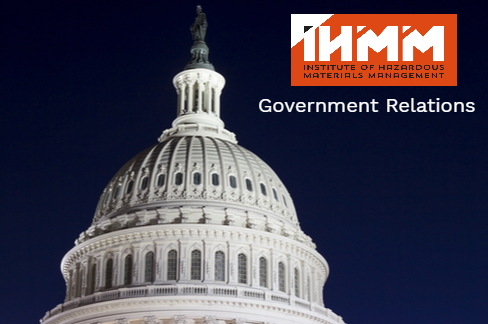Yesterday, the House passed the Protecting Nonprofits from Catastrophic Cash Flow Strain Act of 2020 (S. 4209), which specifies that Congress intended for the federal government to cover, upfront, half of the cost prior to a nonprofit paying its unemployment insurance to the state. The bill was passed by the Senate last week and is expected to be signed into law.
The CARES Act included a provision that guaranteed the federal government would cover 50-percent of the unemployment benefit costs that self-insured nonprofits are required to pay to their state. However, the Department of Labor issued guidelines in April that said self-insured nonprofits must first pay the state the full amount owed before receiving a reimbursement, which could put self-insured nonprofits in a potentially untenable cash crunch.
To rectify this situation, Senator Tim Scott (R-S.C.) introduced S. 4209, which clarifies that Congressional intent was for the federal government to cover 50-percent of the cost up front before a nonprofit pays its unemployment insurance to the state. This would prevent nonprofits from getting hit with burdensome upfront costs that the federal government is already obligated to cover. The language of this bill was also incorporated in the HEROES Act, which passed in the House on May 15th.
Small Business Disaster Loan Enhancement Act
On July 2, Senators Brian Schatz (D- Hawaii) and Catherine Cortez-Masto (D-Nev.) introduced the Small Business Disaster Loan Enhancement Act of 2020 to boost funding and lower interest rates for the Small Business Administration’s Economic Injury Disaster Loan (EIDL) program.
Unlike the Paycheck Protection Program (PPP), most nonprofit organizations are eligible for relief through the EIDL program, which also allows for more flexibility and can be used to cover a wide range of costs relative to the PPP. Specifically, this bill calls for the following:
- Lower interest rates to one percent, in line with the PPP loan rate;
- Allow new EIDL loan applicants to receive up to $2 million, based on their financial need;
- Enable current EIDL loan recipients to request an increase in their EIDL loan up to $2 million, based on their financial need;
- Require the SBA to provide the full amount of the EIDL advance requested by an applicant, up to $10,000;
- Create a new EIDL advance of up to $25,000 for applicants that have experienced a reduction of 50 percent or more in gross receipts from a comparable 8-week period before the public health crisis began; and
- Provide an additional $80 billion for EIDL loans and $20 billion for EIDL advances.
We still expect a major COVID-19 relief package later this month and remain steadfast in our pursuit to expand PPP eligibility, pass the Pandemic Risk Insurance Act (H.R. 7011) and pass the Skills Renewal Act, per amended language (H.R. 7032 / S. 3779).


